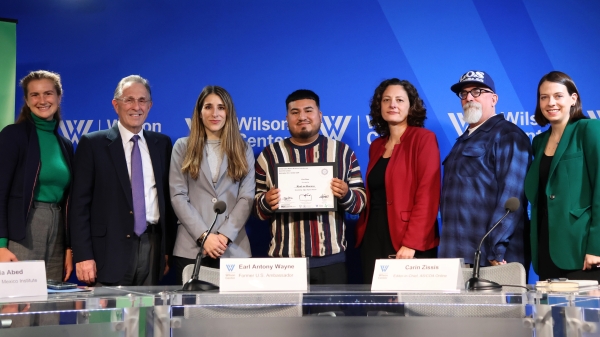ASU unit introduces new Race Relations Scholar Award

Photo illustration by Charlie Leight/ASU Now
The School of Historical, Philosophical and Religious Studies is announcing a new initiative to promote the study of racism and racial relations in graduate studies at Arizona State University.
The school is now offering five awards to eligible on-ground graduate students at ASU, known as a Race Relations Scholar Award. The awards will recognize the scholarship in the humanities on topics about race relations, with priority given to race relations in the United States.
“The School of Historical, Philosophical and Religious Studies has committed itself to addressing racism in its many forms, both inside and outside of the academy,” said school Director Richard Amesbury. “These awards make it possible for graduate students across ASU’s several campuses to work with world-renowned scholars in SHPRS on projects that address their own experiences of race and racism.
“We hope that these projects will foster wider dialogue across the university about white supremacy and anti-Blackness, Indigeneity, historical and contemporary uprisings on behalf of racial justice and other topics having to do with the critical study of race, particularly in the context of the United States.”
The award is open for all on-ground ASU graduate students. Upon receiving the award, recipients will join as a cohort that will meet virtually five times throughout the 2020–2021 academic year to discuss progress on their respective projects. Each award winner will earn $2,000 for their time as a Race Relations Scholar.
These awards began development a month ago, when history Regents Professor Donald Fixico saw a description of a similar award at the University of New Mexico.
“I thought that ASU should be doing something like that in the humanities to promote a better understanding of race relations in society,” said Fixico. “So, about three weeks ago, I began to discuss the idea with our director, Richard Amesbury, and our Anti-Racism Committee that I serve on.”
The school assembled the Anti-Racism Committee, headed by history Associate Professor Julian Lim, during the summer in response to “the ongoing cycle of Black and brown rebellions that collectively struggle against police violence — the symptomatic manifestation of a violent system of white supremacy that structures everyday life in the United States,” as their webpage states.
“It is clear to most Americans, more now than ever before, that we need to truly confront the ongoing legacies of slavery, anti-Black racism, settler colonialism and anti-immigrant xenophobia that has shaped society, both in the U.S. and beyond,” said Lim. “We hope the awards help to support emerging scholars at ASU, as they push for deeper understandings about racism and social justice through their research, teaching and public service.
“We also planned these awards to help foster a deeper sense of community across our campuses and among graduate students, and to strengthen interdisciplinary approaches to the study of these topics. We're hopeful that the success of the scholarship program will demonstrate to the administration the value of — and need for — increasing financial support for ASU students interested in working on questions of racism and antiracism that affect our communities, and society more broadly.”
The school and the committee have dedicated their focus to actively fighting against racism in new, innovative ways.
“With all of the racial tension and violence happening during the last few years, everyone needs to try to improve racial relations to make this a better country,” Fixico said.
Along with the committee promoting the new awards, they will be hosting specific events to open up discussions around social justice, race studies and much more.
“We are very grateful to distinguished historian and Regents Professor Donald Fixico, whose own work explores the history of Indigenous nations in the American West and draws upon his experience as Shawnee, Sac and Fox, Muscogee Creek and Seminole, for making these awards possible and for the support of the SHPRS Anti-Racism Committee, which has taken the lead in promoting this and other important anti-racism initiatives,” Amesbury said.
Applications are due Oct. 1. To learn more about the award and to apply, see the scholarship page.
More Arts, humanities and education

Kaleidoscope short film contest inspires powerful binational filmmaking in its second year
“We come to this country not to steal anybody’s jobs but to take advantage of the opportunities that the rest ignore. We’ve been…

School of Social Transformation faculty member assumes new title with NSF
School of Social Transformation faculty member and Founding Executive Director of the Center for Gender Equity in Science…

ASU's Neal Lester reflects on life, death of poet Nikki Giovanni
When Neal Lester heard on Monday that poet and activist Nikki Giovanni had died, the news hit hard.Lester, the founding director…